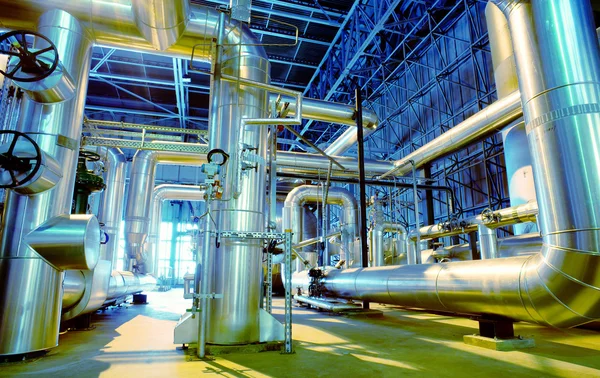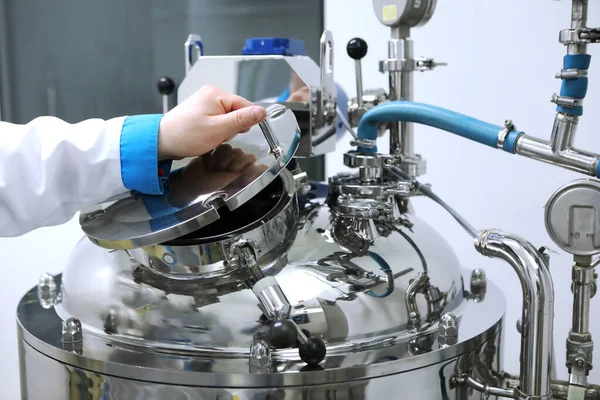Mastering The Science: Fine Chemicals Manufacturing Demystified
In the intricate landscape of chemical engineering, the production of fine chemicals stands as a pinnacle of scientific mastery. This article aims to demystify the nuanced science behind Fine chemical manufacturing, shedding light on the complexities that characterize this essential domain. Fine chemicals, often hailed as specialty chemicals, play a pivotal role in crafting the foundations of pharmaceuticals, agrochemicals, and a spectrum of specialized applications. The synthesis of these chemicals requires a profound understanding of chemical reactions, process optimization, and analytical techniques to ensure the precise composition and high purity essential for their intended purposes.
Delving into the heart of this scientific endeavor, we will explore the key components that constitute fine chemicals manufacturing, unravel the role of cutting-edge technologies in the process, and illuminate the challenges and future trends that shape this dynamic field. From chemical synthesis to the integration of automation, data analytics, and green chemistry principles, this exploration seeks to unravel the layers of complexity surrounding the production of fine chemicals, offering a concise yet comprehensive introduction to the art and science of mastering this crucial facet of modern industry.
Understanding Fine Chemicals
Fine chemicals, often referred to as specialty chemicals, are substances produced in small quantities with a high degree of purity. These chemicals serve specific purposes in industries where precision and quality are paramount. Unlike bulk chemicals, which are produced in large quantities for general applications, fine chemicals are tailored to meet the stringent requirements of specialized applications.

The Importance of Fine Chemicals Manufacturing
Fine chemicals serve as the building blocks for various products, including pharmaceuticals, agrochemicals, and electronic materials. The manufacturing of fine chemicals is a complex and sophisticated process that demands precision and adherence to stringent quality standards. Mastering this science is crucial for ensuring the consistent production of high-quality fine chemicals that meet the diverse needs of industries.
Key Components of Fine Chemicals Manufacturing
Chemical Synthesis
Chemical synthesis is the foundation of fine chemicals manufacturing. It involves the transformation of raw materials into the desired chemical compounds through a series of well-defined reactions. The synthesis process requires a deep understanding of chemical reactions, reaction kinetics, and the properties of the substances involved.
Process Optimization
Fine chemicals manufacturing involves optimizing processes to enhance efficiency, reduce costs, and minimize environmental impact. This includes selecting the most suitable reaction conditions, optimizing reaction parameters, and employing advanced process control technologies.
Analytical Techniques
Analytical techniques, like chromatography and spectroscopy, are essential tools for scrutinizing and validating the composition of substances in diverse industries. These methods enable precise analysis, ensuring the purity and quality of materials, from pharmaceuticals to environmental samples.
The Role of Technology in Fine Chemicals Manufacturing

Automation and Robotics
Automation plays a vital role in fine chemicals manufacturing, enabling precise control over various stages of the production process. Robotics are employed for tasks such as sample handling, reaction monitoring, and product purification, contributing to increased efficiency and reduced human error.
Data Analytics and Machine Learning
Data analytics and machine learning empower industries by uncovering patterns and insights within large datasets. Through advanced algorithms, these technologies enhance decision-making processes, optimize operations, and predict trends, fostering efficiency and innovation across diverse sectors. Delve deeper into Fine chemicals manufacturing.
Challenges in Fine Chemicals Manufacturing
- Complex Synthesis Processes: The intricate nature of fine chemicals often involves multi-step synthesis processes, demanding meticulous control to achieve high purity and yields.
- Stringent Regulatory Compliance: Meeting strict regulatory standards, especially in pharmaceutical applications, adds complexity to the manufacturing process, necessitating rigorous quality control measures.
- Economic Viability: Producing small quantities of fine chemicals with high purity can be economically challenging, requiring manufacturers to strike a balance between cost-effectiveness and maintaining product quality.
- Environmental Impact: Minimizing the environmental footprint poses a challenge, prompting the industry to adopt greener practices and sustainable approaches to meet growing environmental expectations.
- Continuous Improvement: Continuous improvement is essential in fine chemicals manufacturing, with the need to optimize processes, reduce waste, and enhance overall efficiency to stay competitive in the market.
Future Trends in Fine Chemicals Manufacturing
Green Chemistry
Green chemistry is a discipline focused on developing environmentally friendly processes and products. It promotes the reduction or elimination of hazardous substances, the use of renewable resources, and the improvement of energy efficiency in chemical manufacturing. The goal is to minimize environmental impact and enhance sustainability, fostering innovation for a cleaner and more sustainable future.
Continuous Manufacturing
Continuous manufacturing is a production approach where materials move through the manufacturing process without interruption. Unlike traditional batch processing, which occurs in separate steps, continuous manufacturing involves a seamless, ongoing flow. This method offers advantages such as improved efficiency, reduced waste, and enhanced control over the production process, contributing to streamlined and cost-effective manufacturing in various industries.
Advanced Materials and Nanotechnology
Advanced materials and nanotechnology delve into the manipulation and utilization of matter at the nanoscale, offering unprecedented control over materials' properties. At dimensions smaller than a billionth of a meter, these technologies enable the creation of materials with enhanced characteristics, revolutionizing fields from electronics to medicine. The manipulation of materials at this scale opens pathways for groundbreaking innovations that redefine the possibilities of modern technology and industry.

